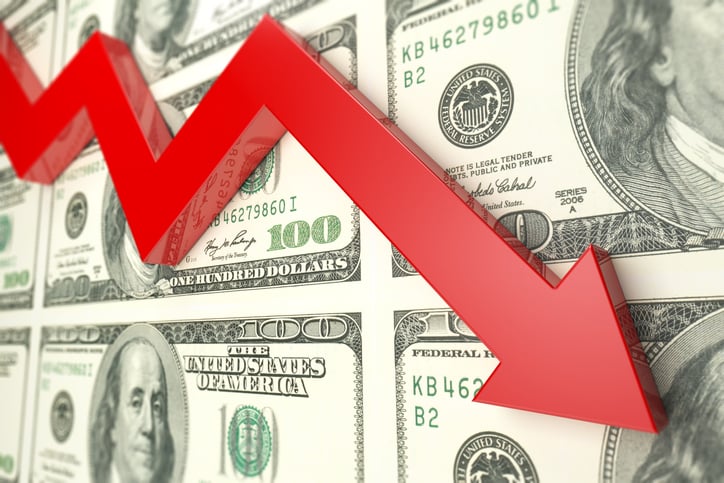The fourth-quarter 2019 earnings report from E*Trade Financial Corporation (ETFC +0.00%) revealed a 55% plunge in quarterly commission revenue, to $172 million ($0.76 per share) compared with $270 million ($1.06 per share) the year prior. The stock was hit hard in early October after management announced a shift to a commission-free model; free trades from popular investment apps like Robinhood compelled E*Trade -- and the rest of the industry -- to go commission-free as well. Revenue fell to $679 million for the quarter from $735 million the year before, worse results than analysts expected.
Now, E*Trade must figure out how to make up the revenue that disappeared.

Image Source: Getty Images.
How E*Trade makes money
The good news for E*Trade investors is that online brokerages make most of their income from lending and asset management, not commissions. E*Trade's largest source of revenue is net interest income (NII), which bank investors will know as a measure of financial performance that reflects the difference between the revenue generated from a bank's interest-bearing assets and the expenses associated with paying on its interest-bearing liabilities.
Put simply, the bank -- or brokerage -- pays you a certain interest rate on your deposit, then loans that money out at a higher rate. The average spread, or net interest margin (NIM), is 3%. Anything above this, and the bank or broker is doing well. E*Trade reported fourth-quarter NIM of 3.01% -- right in line with the industry average, but lower than 3.28% a year ago.
Focusing on asset management
Now that the commission wars are over, online brokerages including E*Trade must figure out new ways to generate income beyond lending money for margin and mortgages. This is where asset management comes in.
Has your online brokerage emailed you recently about signing up for their asset management services? Mine has. E*Trade made a sizable investment in this vein last year with its $275 million acquisition of Trust Company of America, a custodian that focuses on tech. (Custodians are financial institutions that hold customers' securities and other assets to keep them safe and minimize the risk of theft or loss.)
Instead of earning $6.95 per trade, E*Trade and other industry rivals are focusing on charging an annual asset management fee of 0.25% to 0.5% per year on a customer's entire portfolio. To that end, management is focused now on gathering assets and providing ongoing investment management.
All about margin loans
While asset management may replace some of the lost commission revenue, margin loans remain a backbone of E*Trade's business. In the same way that a bank can lend you money if you have equity in your house, your brokerage can lend you money against the value of certain stocks, bonds, and mutual funds in your portfolio. The money you borrow from a brokerage to finance your investments is called "margin," and it's the difference between the total value of the securities in your account and the amount you owe the broker.
Margin trading allows investors to buy more stock than they otherwise could; customers then pay interest on the loan, with those charges applied to their account until payment is made. This practice is very profitable for brokerages, which may pay only 1% on deposits but lend them out to finance margin activities at a rate of 5% to 10%.
A better value than its rivals
The P/E ratio measures the relationship between a company's stock price and its earnings per share of stock issued. Priced at 11.2 times trailing earnings, E*Trade's stock looks undervalued compared with rivals Interactive Brokers (IBKR +2.74%) (at 19.8) and Charles Schwab (SCHW +0.51%) (at 18.5).
Another metric to consider is the price-to-book (P/B) ratio, which is calculated by dividing a company's stock price by its book value per share (defined as its total assets minus any liabilities). A low P/B ratio can indicate an undervalued stock. E*Trade's P/B ratio comes in at 1.76, compared with Schwab at 3.36 and Interactive Brokers at 2.5. Even after a bad quarter, E*Trade looks like a better value than its key industry rivals.








